The Alcobaça apples are grown on the shore of the coast of Nazaré, which is well known by surfers around the world for its giant waves. The Association of Producers of the Apple of Alcobaça will begin to market these Atlantic apples, which have been granted a PGI because of their characteristics, in Spain under its collective brand.
“The Association was established in 2001. Its goal was to make Portuguese consumers revalue the apple produced in the country, which has a smaller caliber than the apples imported from Spain, Italy, and France that supermarkets began to sell in the 1990s with the accession of Portugal to the European Community, but that has a great flavor,” stated Jorge Soares, president of the Association.
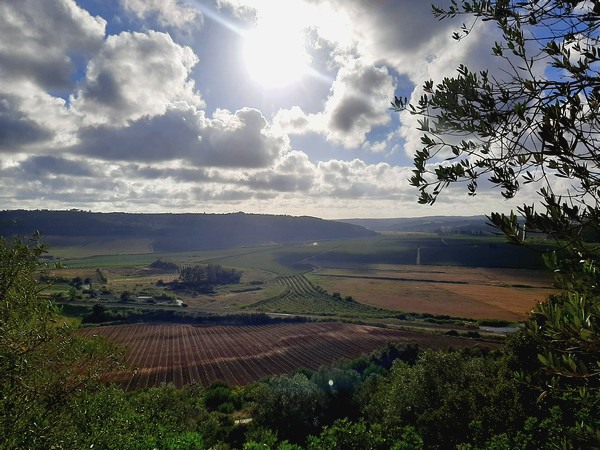
Pome crops in Óbidos.
“At that time the sector had to make a great effort to be more competitive. Producers created cooperatives and producer organizations, the apple orchards were renovated to more modern plantations inspired by Lleida's production model, and the PGI Maça de Alcobaça (Apple from Alcobaça) was created in the year 94,” stated Jorge Soares, the manager of one of the 22 OPs that today make up the Association of Apple Producers of Alcobaça while walking through its apple grove on the banks of the Baça River reviewing the small apples that are starting to grow in the trees that will be harvested starting mid-August.
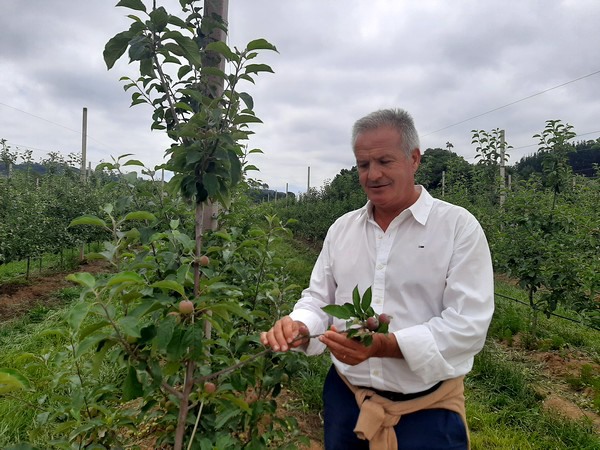
Jorge Soares.
“The collective brand currently represents 70% of the Western Region's total production. This year we'll produce around 60 million kilos of apples, and after an intense campaign to promote consumption in Portugal, we've decided to increase marketing to new markets. Spain and Brazil are our top priorities.”
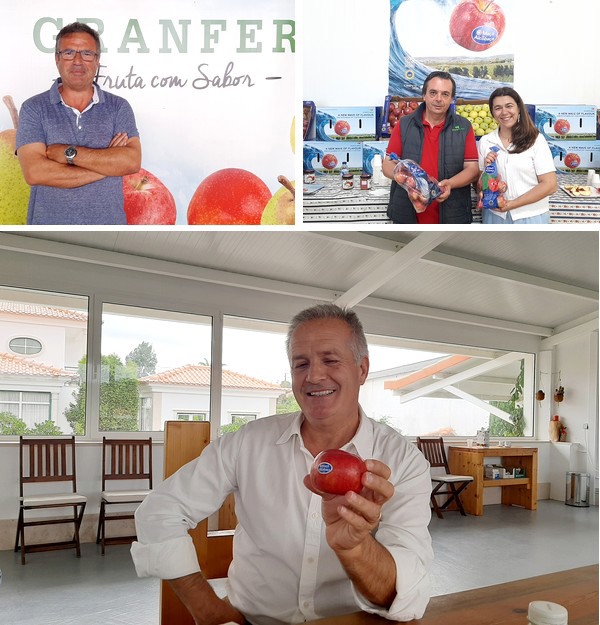
Helio Ferreira, from Granfer, and Rui Ferreira, from Cooperfrutas, together with Susana, 2 of the 22 OPs of the Association of Apple Producers of Alcobaça that FreshPlaza visited in Portugal, and Jorge Soares, its president.
“The Atlantic apple is different because of its taste”
So far the consumption of the Alcobaça apple has been mostly domestic and, despite being produced in a coastal region that lies between 10 and 60 meters above sea level and has an average of 500 hours of cold per year, it used to be exported in the past. There are records that indicate Alcobaça has produced and exported apples since the tenth century. Back then the region belonged to the Cistercian monastery of Alcobaça and, in the fifteenth century, its apples were exported to North Africa and the British islands, where they were highly appreciated.
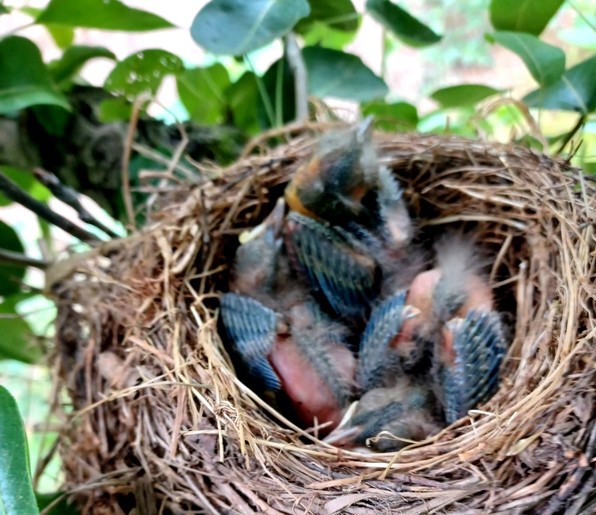
100% of the Apple production under the collective brand is integrated. In the photo, a nest in one of the trees.
“The apple grown here is different in taste. It's one of the characteristics that we the collective brand, which is much more demanding in quality than the PGI, want to convey to consumers. Our apple is very sweet. It has 14 to 16 degrees Brix levels, but it also has a very high amount of acids because of the influence of the Atlantic -it can have about 4 mg of acid-, so it has a very balanced flavor and is a very aromatic apple. Regarding their external quality, our Fujis are sold with a 60-70% coloration compared to the 20-30% at which the variety is normally sold, so externally it is a very attractive apple.”
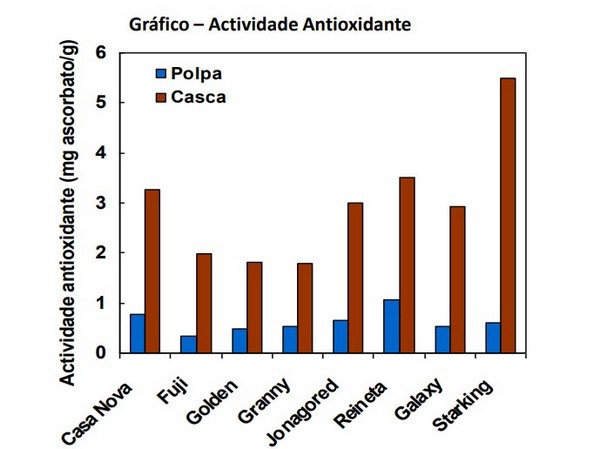
The Association shared the results of a study comparing the number of antioxidants in the pulp (blue color) and skin (brown color) of apples according to varieties.
Its caliber is one of its main characteristics, Jorge stated. “It's a medium-small sized apple, which equates to a portion of whole fruit and it's easy to consume. In fact, in Portugal today the large calibers of the Alcobaça apple account for 30-40% of sales, while the medium-small calibers account for the remaining 60-70%.”
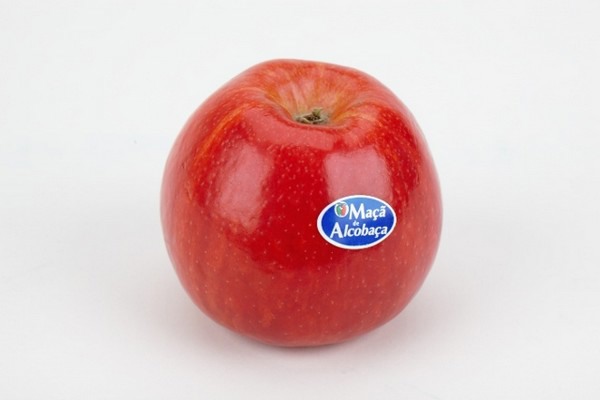
“This is also the caliber that Brazilian consumers tend to eat because their national apple sector produces medium and small-sized apples. That's why we believe that it will be easier to reach the Brazilian market in the counter-season,” stated the president of the Association, who this week received a visit from delegates of the Pão de Açucar Brazilian supermarket chain, which has more than 2,000 establishments in the country.
“We also want to win over Spain, one of Portugal's largest importers in general, with our offer, competitive prices, and flavor, and we want to start doing it from the next campaign through distribution networks and regional and national supermarket chains, with which we already have contact.”

For more information:
Asociación de Productores de Manzana de Alcobaça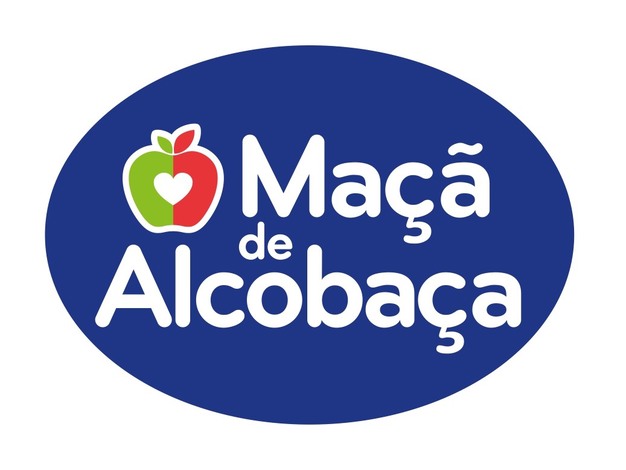
Apartado 23 EC Bairro dos Arcos 2510-081 Óbidos
maca.alcobaca@gmail.com
geral@clubedamaca.pt
www.macadealcobaca.pt
